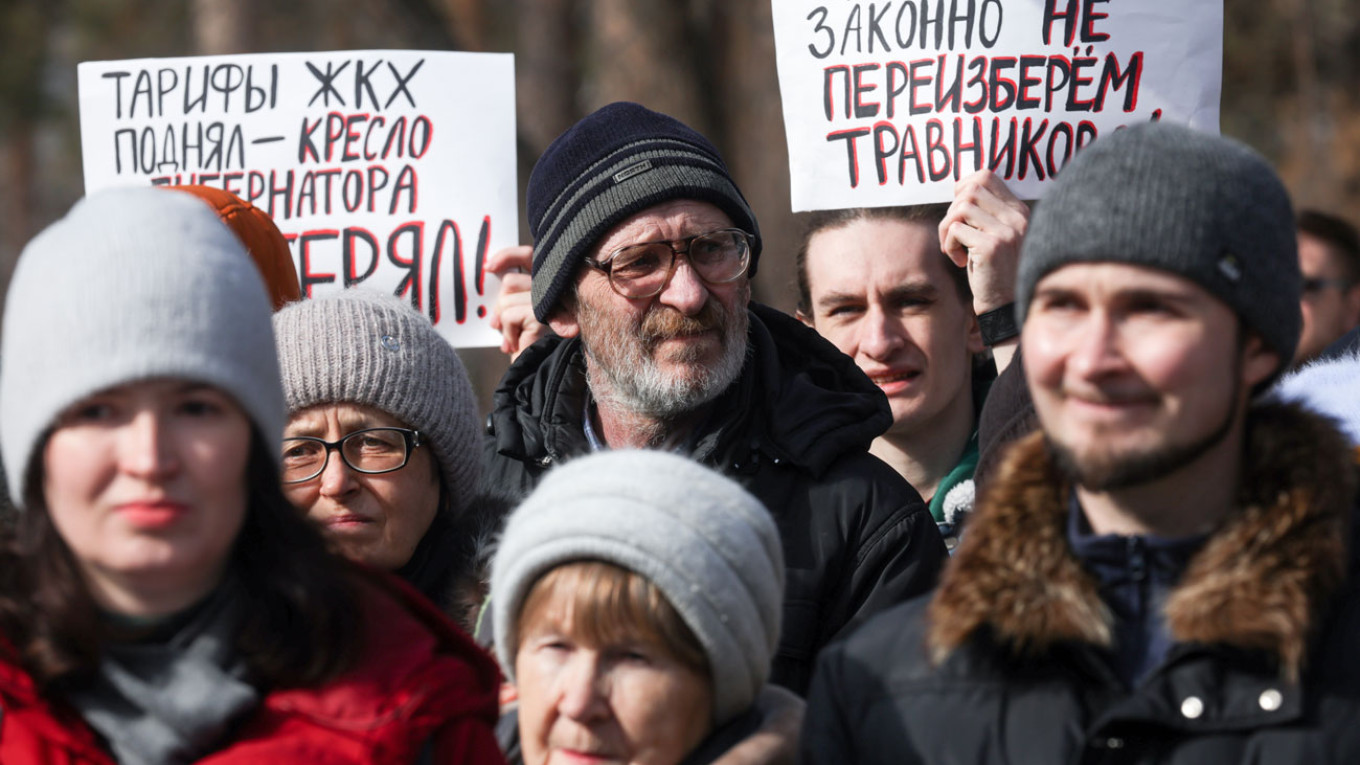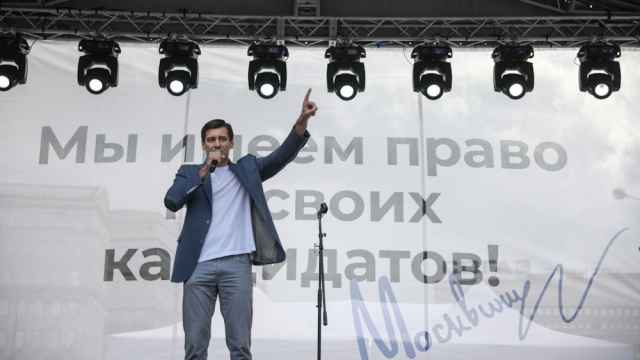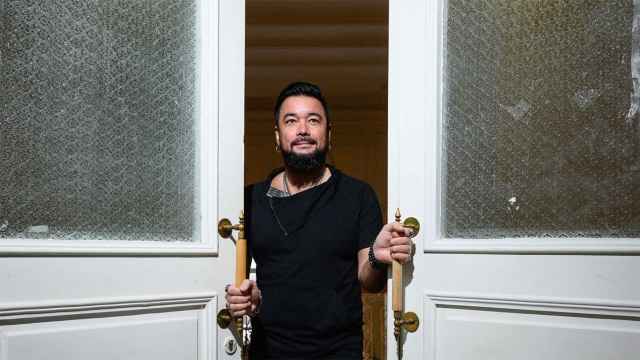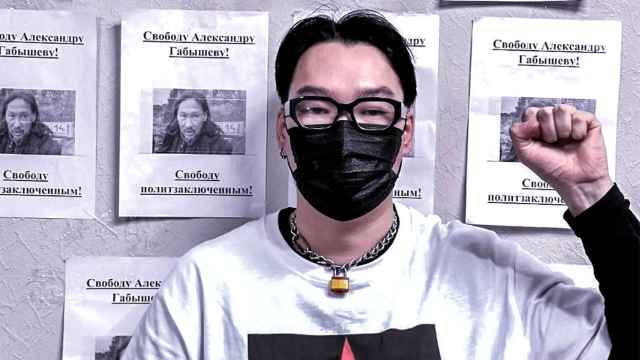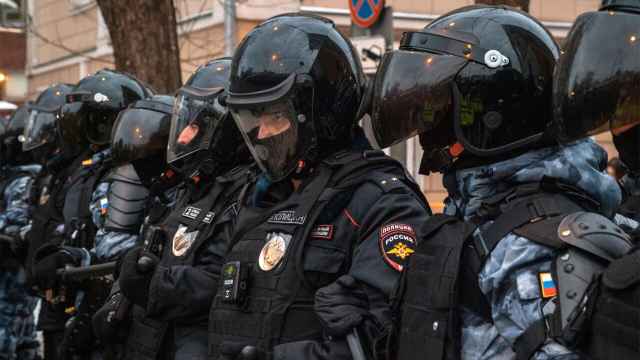On a recent cold March afternoon, a handful of people gathered on a square in downtown Ulyanovsk, a midsized Russian city on the Volga River, to demand the return of direct elections for the city’s mayorship.
Despite a large police presence, the gathering — which featured speeches from local activists and politicians — went ahead without a single arrest.
“Forty participants might seem like very little,” Konstantin Tolkachev, a local lawyer who organized the protest, told The Moscow Times. “But given all the restrictions… and that it happened in Russia in 2023… I think the first rally went well.”
Notwithstanding wartime censorship and a crackdown on dissent since the invasion of Ukraine, the Russian authorities apparently feel secure enough to allow modest expressions of opposition — and street protests still regularly take place across the country. As long as there is no criticism of Russia’s invasion of Ukraine or the Kremlin, activists said, police are likely to leave demonstrators alone.
While the immediate political significance of such protests is close to nil, some experts believe that their mere existence helps erode fear and nurture Russia’s battered civil society.
“The more there is discontent and the more frequently people come out to demonstrate over small issues, the more experience they gain in how to protest and build horizontal networks,” said Guzel Yusupova, a political sociologist and expert on the Russian regions at Canada’s Carleton University.
“Most importantly, those [who protest] see that they are not alone and that there are many people who are also dissatisfied.”
Any protest involving more than one person in Russia must obtain advance approval from the local authorities.
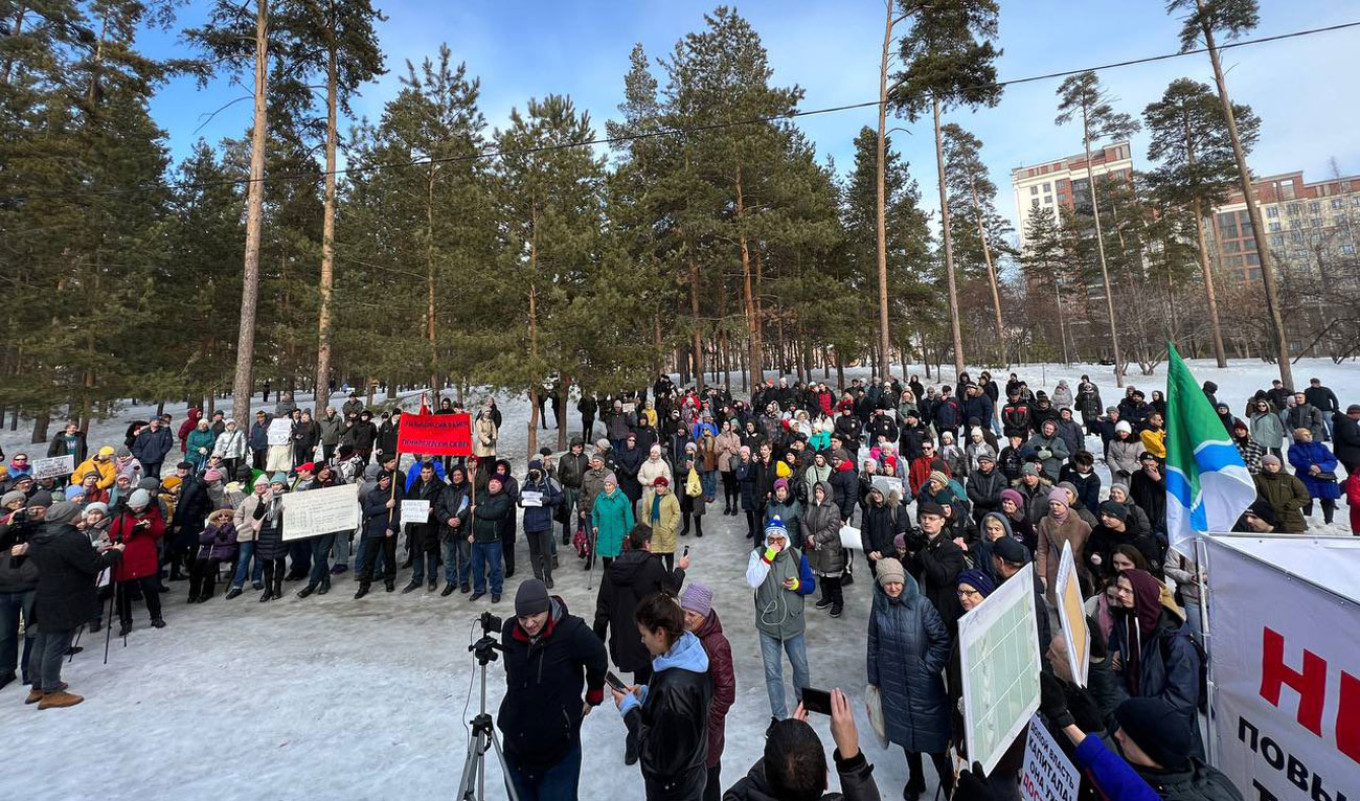
As the war in Ukraine is a red-flag issue for officials, permitted rallies tend to focus strictly on local politics or social and environmental issues — like urban planning decisions, new landfill sites or working conditions.
According to Anton Kartavin, an independent municipal deputy from the Siberian city of Novosibirsk, it is much easier to organize protests today than during the coronavirus pandemic when the department within the mayor’s office tasked with issuing protest permits was shut for months.
“It was impossible to get anything authorized then. Now that is not the case,” Kartavin told The Moscow Times. “It is possible to talk to them and they authorize gatherings.”
In March, Kartavin received permission for a rally against rising utility prices, although it was only granted for a location on the city’s edge.
The protest went ahead last month, attracting about 300 people. There were no arrests.
Following 2012 amendments to Russia’s law on public gatherings, all Russian regions have designated protest areas — known as “Hyde Parks” after the popular U.K. protest spot — where gatherings of under 100 people can take place without prior approval.
Even so, these areas are often far from city centers and most protest organizers seek official approval anyway to reassure people who would otherwise be fearful of arrest.
Ulyanovsk-based activist Tolkachev only held his rally about direct mayoral elections after a local court deemed the authorities’ initial decision to refuse approval for the protest illegal.
“The right of citizens of the Russian Federation to gather peacefully, without weapons, to hold public gatherings and demonstrations, rallies and pickets is a constitutional right,” read the court ruling seen by The Moscow Times.
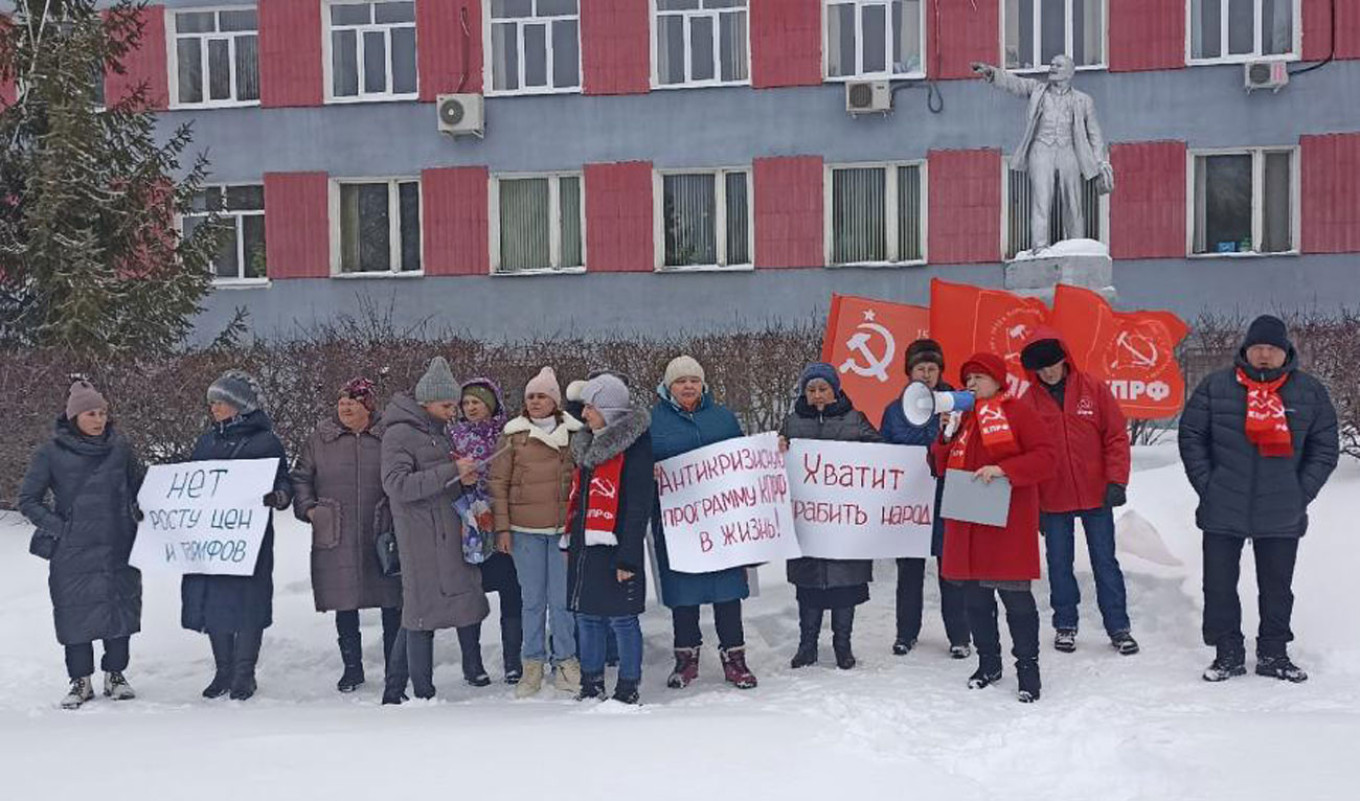
However, Russia’s crackdown on virtually all forms of activism has undoubtedly eroded people’s willingness to attend even relatively innocuous rallies — and that of activists to address crowds.
“People have become more scared. Even those who actually want to speak at a rally now tell me, ‘No, Anton, I am scared. I think they could take me in and beat me up. I think I won’t go’,” said Novosibirsk deputy Kartavin.
If there is any hint of public criticism of the Kremlin’s decision to invade Ukraine or the way the Russian Armed Forces are fighting, a protest is likely to be broken up by police.
“At big anti-war rallies they arrest everyone,” said Kartavin.
Street demonstrations over local issues are often allowed to go ahead because the authorities are less worried about them snowballing into a political threat, according to expert Yusupova.
“Loyalty to the Kremlin is now expressed in how well the region supports the war… and not in how well it suppresses protests,” she said.
In addition to the efforts of independent activists like Tolkachev and Kartavin, many regional protests are organized by one of Russia’s political parties that act as token opposition forces while remaining ultimately loyal to the Kremlin.
Russia’s Communist Party, for example, is a frequent sponsor of protests, with many gatherings under its auspices addressing rising utility prices or historical events linked to the party.
While there is no reliable data on the number of protests in Russia before and after the invasion of Ukraine, it is clear Russia has chosen not to close all avenues for expressing discontent as the fighting continues to rage.
Activists like Tolkachev and Kartavin believe that organizing protests is not a pointless activity despite the slim chances of achieving any significant change.
“My goal was to show that [organizing a protest] is real and possible, that one must act instead of complaining,” said Tolkachev, who is currently planning a demonstration in the regional town of Dimitrovgrad.
Expert Yusupova shared some of the cautious optimism of the two local activists.
“As a rule, all big revolutions… start because of small issues and events,” she said.
A Message from The Moscow Times:
Dear readers,
We are facing unprecedented challenges. Russia's Prosecutor General's Office has designated The Moscow Times as an "undesirable" organization, criminalizing our work and putting our staff at risk of prosecution. This follows our earlier unjust labeling as a "foreign agent."
These actions are direct attempts to silence independent journalism in Russia. The authorities claim our work "discredits the decisions of the Russian leadership." We see things differently: we strive to provide accurate, unbiased reporting on Russia.
We, the journalists of The Moscow Times, refuse to be silenced. But to continue our work, we need your help.
Your support, no matter how small, makes a world of difference. If you can, please support us monthly starting from just $2. It's quick to set up, and every contribution makes a significant impact.
By supporting The Moscow Times, you're defending open, independent journalism in the face of repression. Thank you for standing with us.
Remind me later.



